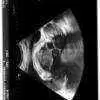-
Welcome to Celiac.com!
You have found your celiac tribe! Join us and ask questions in our forum, share your story, and connect with others.
-
Celiac.com Sponsor (A1):
Celiac.com Sponsor (A1-M):
-
Get Celiac.com Updates:Support Celiac.com!
Trying To Figure Out My Sleep Problem
-
Get Celiac.com Updates:Support Celiac.com:
-
Celiac.com Sponsor (A17):
Celiac.com Sponsor (A17):
Celiac.com Sponsors (A17-M):
-
Recent Activity
-
- trents replied to ekelsay's topic in Post Diagnosis, Recovery & Treatment of Celiac Disease1
50 YO Male Recently Diagnosed with Celiac Disease
Welcome to the forum community, @ekelsay! Yes, your tTG-IGA score is strongly positive for celiac disease. There are other antibody tests that can be run when diagnosing celiac disease but the tTG-IGA is the most popular with physicians because it combines good sensitivity with good specificity, and it is a relatively inexpensive test to perform. The... -
- Anmol posted a topic in Post Diagnosis, Recovery & Treatment of Celiac Disease0
Recently Diagnosed Celiac- Need advice
Hello all- my wife was recently diagnosed with Celiac below are her blood results. We are still absorbing this. I wanted to seek clarity on few things: 1. Her symptoms aren't extreme. She was asked to go on gluten free diet a couple years ago but she did not completely cut off gluten. Partly because she wasn't seeing extreme symptoms. Only bloating... -
- Tanner L replied to Tanner L's topic in Gluten-Free Foods, Products, Shopping & Medications6
Bad Reaction To Regular Ruffles Cheddar and Sour Cream
Constantly! I don't want everything to cost as much as a KIND bar, as great as they are. Happy most of the info is available to us to make smart decisions for our health, just need to do a little more research. -
- ekelsay posted a topic in Post Diagnosis, Recovery & Treatment of Celiac Disease1
50 YO Male Recently Diagnosed with Celiac Disease
Today, I received the results of my Tissue Transglutaminase (tTG) Ab, IgA test. I am not sure how to interpret the results. I have left a message for the doctor that requested the test but have not heard back. The results stated that the normal range is from 0.00 - 4.99 FLU. My results came back at 92.08. Is this concerning? This seems extremely high for... -
- Scott Adams replied to Jesmar's topic in Celiac Disease Pre-Diagnosis, Testing & Symptoms3
Weak positive anti-ttg igA?
Be sure to keep eating gluten daily until all testing is completed. Here is more info about how to do a gluten challenge for a celiac disease blood panel, or for an endoscopy: and this recent study recommends 4-6 slices of wheat bread per day:
-




Recommended Posts
Archived
This topic is now archived and is closed to further replies.